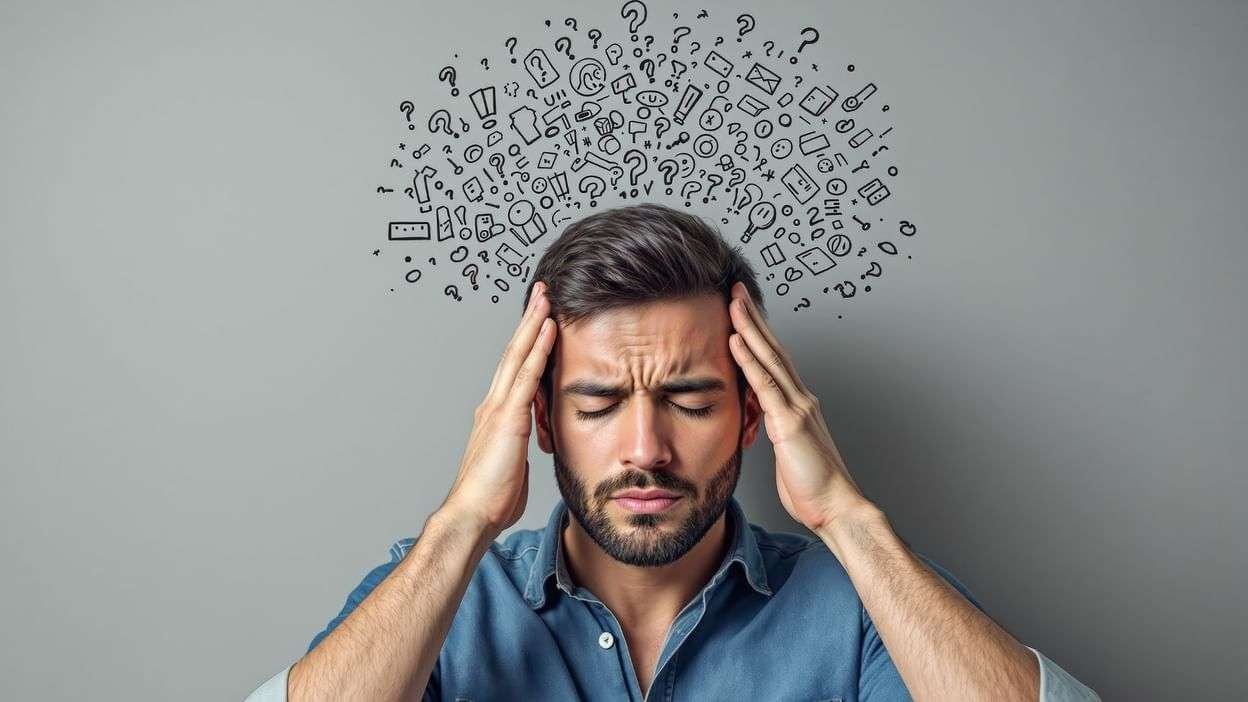
If you’re searching for gentle Remedies for Anxiety and Depression, this Ayurvedic + evidence-aware guide gives practical, day-to-day strategies you can start at home. These remedies for anxiety and depression combine breathing practices, herbs, diet, routine, movement and psychological self-help. Use them safely and get professional help when needed.
The problem
Anxiety and depression are common — they reduce energy, concentration, sleep quality and enjoyment of life. In Ayurveda these often reflect imbalance of Vata (anxiety, worry) and Kapha (heaviness, low motivation) plus weakened Satva (mental clarity). The immediate problem is persistent worry, low mood or panic; the deeper problem is disrupted digestion, poor sleep, chronic stress and lifestyle patterns that keep the mind stuck. Effective Remedies for Anxiety and Depression must calm the nervous system, restore sleep and digestion, and rebuild daily routine and social support.
How to use these remedies for anxiety and depression
Pick 2–3 practices you can do daily for 4 weeks. Small, consistent changes stack up. If symptoms are severe, include a mental health professional (psychologist/psychiatrist) and your Ayurvedic practitioner for safe, combined care.
Remedies for Anxiety and Depression
1) Breathwork & short daily meditation — immediate calming remedies for anxiety and depression
Why: Breath control lowers sympathetic arousal and eases panic.
How: Practice Anulom Vilom (alternate nostril breathing) for 5 minutes and Bhramari (bee breath) for 3–5 minutes daily. Add a 5–10 minute guided meditation (focus on breath or gratitude).
2) Gentle movement & sun exposure — mood-boosting remedies for anxiety and depression
Why: Exercise releases endorphins and morning sun helps serotonin & circadian rhythm.
How: Walk 20–30 minutes each morning in daylight, or do gentle yoga (sun salutations, forward bends) 3–5 times weekly.
3) Improve sleep hygiene — a foundational remedy for anxiety and depression
Why: Poor sleep worsens mood and anxiety.
How: Keep consistent sleep/wake times, avoid screens 60 minutes before bed, and create a calming pre-sleep routine (warm bath, light reading).
4) Ayurvedic rasayanas & calming herbs (use under guidance)
Why: Certain herbs support resilience, calm the nervous system and improve sleep.
Common options: Ashwagandha (adaptogen), Brahmi (medhya for clarity), Jatamansi (calming), Shankhpushpi (focus). Always use standardised products and consult an Ayurvedic doctor, especially if you’re on other medicines.
5) Nutrition & gut health — dietary remedies for anxiety and depression
Why: Stable blood sugar and a healthy gut microbiome support mood.
How: Eat regular, warm, lightly spiced meals. Include omega-3 rich foods (flaxseed, walnuts, fatty fish if non-veg), magnesium-rich greens, fermented foods (dahi/curd, idli, dosa in moderation) and avoid excess caffeine and alcohol.
6) Short cognitive tools — practical remedies for anxiety and depression
Why: Simple psychological techniques reduce runaway worry and negative thinking.
How: Use cognitive reframing (note 1 worry + 1 small action), behavioural activation (schedule one enjoyable small activity daily), and 5-minute grounding (5 things you see, 4 you can touch, 3 you hear, 2 you smell, 1 you taste).
7) Social connection & routine — supportive remedies for anxiety and depression
Why: Isolation deepens low mood. Routine rebuilds meaning.
How: Keep small social touchpoints (call a friend, join a class), schedule regular meals and activity times, and track mood in a brief diary.
8) Light therapy & environment — practical adjuncts
Why: For seasonal low mood, bright light in the morning helps.
How: Spend 20–30 minutes in natural daylight or use a light box (follow manufacturer guidance).
9) Relaxing topical & body therapies — calming remedies for anxiety and depression
Why: Abhyanga (warm oil massage) and warm baths reduce tension and improve sleep.
How: Try a weekly self-massage with warm sesame or coconut oil, focusing on neck and shoulders before a warm shower.
10) Integrated care — combine Ayurveda and psychology when needed
Why: Moderate-to-severe anxiety or depression responds best to combined approaches — psychotherapy (CBT), medications if indicated, plus Ayurvedic support.
How: Work with both a mental health professional and an Ayurvedic practitioner for tailored herbs, dosages and therapy plans.

When to get urgent help
If you experience thoughts of harming yourself, hopelessness, severe withdrawal, inability to eat or sleep for long periods, or sudden cognitive changes — seek immediate help. Contact local emergency services, your doctor, or a mental health crisis hotline right away. If you’re in India and unsure where to call, go to the nearest hospital emergency department or contact your local mental health services.
When to get a consultation
If symptoms last more than two weeks, recur, or interfere with work and relationships, get personalised care. For an integrated Ayurvedic plan (herb selection, rasayana, Nasya in select cases) and coordinated mental-health referral, get a consultation from Vedic Upchar:
👉 https://vedicupchar.com/doctor-consultation
A practitioner will assess your dosha, sleep, digestion and suggest safe herbs, lifestyle routines and referrals as needed.
Quick daily starter routine
Morning: warm water, 10–20 min sunlight walk, 5 min Anulom Vilom.
Midday: balanced meal with protein + greens, short walk after lunch.
Evening: 10 min gentle yoga or stretching, 5 min Bhramari, warm shower and 30–60 min screen-free wind-down.
Night: small herbal tonic if advised (e.g., Brahmi/ashwagandha) and consistent bedtime.
Safety notes
- Always discuss herbs with your prescribing doctor if you take antidepressants, benzodiazepines, blood thinners or other medicines. Herb–drug interactions exist.
- Pregnant or breastfeeding? Consult both your doctor and an Ayurvedic practitioner before starting herbs.
- Self-help helps mild-to-moderate symptoms; moderate-to-severe cases benefit from professional therapy and, where appropriate, medication.